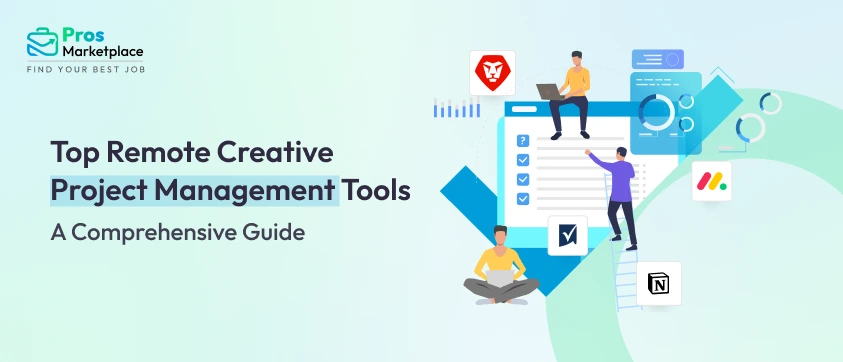Career growth is a necessity in your professional life, so many times you will find yourself at a crossroads when it comes to salary negotiation whether interviewing for a new job role or at your current workplace knowing how to negotiate salary is a must-have skill.
This is also an important skill if you are employed and are looking for a promotion. Remember asking for more money or extra benefits can be stressful, but not asking for the salary you want means you’re not getting paid for your role.
According to Forbes, 62% of people are satisfied with their jobs.
This means companies are competing for talented candidates, giving job seekers more power to ask for more money and get better returns.
It also shows that the top companies are competing for talented candidates, giving job seekers more power to ask for more money and get better returns.
So if you are also looking forward to advancing in your career, check out the below steps by our experts for details on how to negotiate salary and go from temp to permanent
How to Negotiate Your Salary?

Assess Your Skills
Knowing your value is key to negotiating salary and finding a successful job. Start by thoroughly researching the salary market to determine the truth. To make sure your salary expectations are in line with the market, use a trusted platform.
This will make it easier to highlight your strengths when discussing starting salary. After the interview, revisit the job description once you’re clear on the details of the role and the needs of the team. Add any new information or special instructions you wrote.
Know the industry standards
Before you start negotiating the offers, it is important to know the industry standards. This will help you talk about practical figures instead of throwing wild guesses.For real-world strategies and community insight on how to anchor your salary range effectively, explore this discussion thread on anchoring salary expectations through real candidate experiences and expert tips. So before you start negotiating consider the following:
- Employment level
- Education and certification
- Location and more
Highlight these main points when negotiating your salary. You’ll also know that you can be better at salary negotiation once you have a rough idea of your salary range.
Prepare a Pitch

Build on your past accomplishments and prepare a pitch explaining how those accomplishments will help you and the company.
Further, when creating your discussion points, it will be helpful to answer the following questions as a framework for the discussion: Why do you think you deserve a higher salary than your employer offers? Be sure to provide some discussion points and be as specific as possible before contacting the employer. This content will include the following information. Use real numbers if possible.
If you have experience, remember to say it tactfully in your voice.
Show enthusiasm – Early in the conversation, you can use phrases like “This is a career goal of mine working with (company name)” to show how serious you are about the job.
Communicate expectations – During the interview, you should let your employer know that you will benefit from them. To express this, you can say: “I want to transfer responsibility and compensation for my job during this period.
Take your time to respond
When you receive an offer, do not rush to accept or respond. Take your time to review, then thank the recruiter for the opportunity and ask for time to decide. Ask if there is a deadline for responses so you know how long you have to respond. Take the time to fully evaluate whether the salary on the table meets your needs. If not, use your research to create a counteroffer that better suits your needs.
Review Total Compensation
Salary may be the most important factor for some, but for most, it is only one part of the compensation package. Other benefits may include flexible working from home, flexible working hours, bonuses, health insurance, vacation and gym discounts, and more. Depending on your specific situation, these benefits may exceed the slightly higher salary, so it’s helpful to know exactly what’s available.
Close the Deal: Accept the Offer
After making the offer, it is important to show your genuine interest in the job and the company. This not only communicates your commitment but also creates a solid foundation for your future with the organization. It is important even if demand is higher than the average salary for the job. Having a contract can eliminate any misunderstandings regarding terms of employment. This should include all agreed-upon terms such as salary, benefits, and other compensation. Putting this in writing not only protects your interests but also increases due diligence to ensure you and your employer are on the same page about the terms of your new job.
Ask Questions
During the salary interview, you may be asked some uncomfortable questions that put you on the defensive. When you respond, be polite, calm, and collected, and don’t reveal anything you don’t feel comfortable sharing.
Personal questions should generally be avoided in any salary negotiation; so use your judgment when answering these questions. For example, whether you live alone, with your partner, or with your parents, the fact that you are employed should not worry anyone. Is this true?
Know the organization’s values and reflect on them.

Highlight Your Strengths
Know your strengths and highlight how they can contribute to the company and its success. Think about things like the role you held in your last job, the skills you acquired, the level of education you received, and your personality traits, such as work ethic, nice, friendly, or cooperative. Enhance your career by including these in your application and discussing them in job interviews.
Discuss Your Expenses
If you have a family, it’s a long journey or if you have to move from the company to go to work, these are all things you can bring up during the interview regarding your starting salary, and it’s important to gain some weight and these should strengthen your case for deserving a higher starting salary. Don’t talk about things like car payments, travel plans, or equipment purchases. Consider discussing benefits beyond the average salary, such as bonuses, paid time off (PTO), or educational resources.
Negotiate
Do your research and understand your current position. See rejection as an opportunity for growth and healing. To make the process smoother, address multiple issues at once rather than delaying. Show why you deserve a higher salary by highlighting your skills and achievements. Understand the employer’s perspective and be open to flexible solutions. It will be to your advantage to develop a good relationship with Human Resources. When discussing salary, also consider benefits such as childcare, flexibility, and career development. Remember, it’s about creating a salary package that meets your needs and wants.
Additional Tips to Negotiate Your Salary

Communicate with confidence
Talking with confidence is as important as what you say. The more confident you appear, the more confident your employer will be about your feedback. Remember that you bring a variety of valuable skills and experience to the organization, and the salary the employer offers should include the value you provide. If you feel like the first job offers less than you deserve based on your skills and experience, be confident in your decision to ask for more now that you’ve done market salary research and have pricing data to support your offer.
Ask for more
Give the employer a figure higher than your target. That way, even if they negotiate, you’ll still end up with a salary you’re willing to accept. If you offer a higher salary, the employer will choose a lower salary; So make sure the lowest bid is what you still think is fair.
It’s not difficult for candidates to ask employers to adjust their salaries to reflect their expenses. If your job is far from home, you’ll also need to consider transportation costs such as train or gas costs, as well as wear and tear on your vehicle.
Timing is key
Choosing the best time to discuss your salary is important, and it’s usually best after you get the job. However, this may vary depending on the hiring manager’s instructions. During the interview, carefully read the hiring manager’s instructions and salary statement. If they ask for your desired salary or ideal salary, this is a sign of your salary goal.
However, if the subject does not come, it is recommended to wait until it is time for work before thinking about it. Remember that the salary at your current job will set the stage, but when discussing salary, focus on the value you bring to your new job. Demand, clarity, and simplicity are important in salary presentation. Make your offer based on good research and consider the market and job requirements to show that the salary you’re asking for is fair.
Find a balance
Show that you are ready and open to negotiation after your value is clearly understood. This is a skill that needs to be practiced regularly. Mention your current job and current salary as context, but also mention your willingness to participate in the discussion, especially if you’ve been offered the job.
This shows your professionalism and a true understanding of your value. expectations. Don’t rush to answer; Take enough time to think about your salary and how it compares to your income. If you think your salary is lower than you want, be ready for a promotion. In doing so, justify your request for a higher starting salary with well-researched facts, using the personal assessment that applies to you in the previous section.
Negotiate salary with a counteroffer
Most candidates should ask salary-related questions. Show that you are interested in the task at hand, but also show that you want to talk more. This approach not only shows your professionalism but also that you understand both sides of the conversation. Negotiating isn’t just about salary. It may also include different types of compensation, such as flexible hours, remote work options, or scholarships. These factors are especially important if your salary history indicates more than what is offered or if the position is more important in terms of responsibility and performance.
Be understanding
For job seekers, this is the time to get closer to their dream job. Additionally, discussing long-term incentives such as growth opportunities, bonuses, and incentives shows that you are considering a relationship with the company. This shows that you are not only a good communicator, but also passionate about contributing to and growing the organization. This approach not only increases your immediate job satisfaction but also sets the stage for future career development within the company. If the employer refuses to pay you the salary you want, it is important to first understand the reasons.
Ask about the limitations they face; This insight may open the door to other solutions. You need to negotiate when you are the best candidate for the job but remember, negotiation must continue even if you are offered the job.
Build Opportunities
If your salary request cannot be updated due to financial constraints or other reasons and you are still interested in the job, consider other options. This may include a performance review in six months, as well as possible raises, additional vacation time, or other benefits at your expense. This approach shows your flexibility and understanding that there will be many candidates willing to accept the job for the salary offered, but it also shows your unique value and your heart’s desire to find a profitable deal.
Conclusion
Transitioning from a temporary to a permanent position includes salary negotiations. However, following a strategic, step-by-step approach can maximize your chances of securing a desirable compensation package.
This involves researching industry salary standards, understanding the company’s financial health, and evaluating your personal financial needs and career goals. With this groundwork laid, you can approach the negotiation process with confidence and clarity.
While advocating for yourself is essential, being flexible shows professionalism and a willingness to work towards a mutually beneficial agreement. If your initial request cannot be met, explore alternative compensation options or set a timeline for a future salary review based on performance milestones.
So remember negotiating your salary and transitioning from a temp to a permanent role requires preparation, evidence-based arguments, and effective communication. As you focus on this process, know that successful negotiations benefit you and set the stage for a positive and productive relationship with your employer.
Find Remote Jobs on Pros Marketplace







